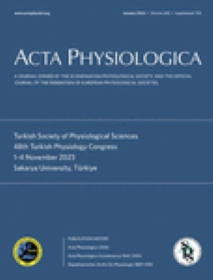Effects of Dietary BCAAs Intake on the Blood Pressure in Dahl Salt-Sensitive Rats
Abstract
Aim
Circulating branched-chain amino acids (BCAAs) have been widely found to be associated with the risk of hypertension, but mechanisms remain unclear. In this study, we hypothesized that BCAAs could alleviate the development of salt-induced hypertension in Dahl salt-sensitive (SS) rats. The objective was to explore whether long-term high-salt diets (a major dietary risk for high blood pressure) alter BCAAs levels in SS rats and how dietary BCAAs influence salt-induced hypertension.
Methods
SS rats received an 11-week dietary intervention to investigate the effects of dietary BCAAs on SS hypertension. Metabolic changes were studied using GC–MS and LC–MS/MS, as well as selected enzyme activity measurements. Western blotting was used to measure the protein levels of p-BCKDHA/BCKDHA and AQP. HUVECs and HK-2 cells were treated with 2 mM BCAAs for 24 h before measuring metabolites and enzyme activities.
Results
An 11-week high-salt diet increased blood pressure in SS rats, which was accompanied by reduced circulating BCAAs levels. Dietary BCAAs attenuated salt-induced hypertension, restored circulating BCAAs levels, and enhanced BCAAs metabolic activity. It also decreased aquaporin-1 (AQP1) levels in the renal cortex, promoting water and sodium excretion and improving renal function in SS rats. Additionally, metabolomic analysis demonstrated that dietary BCAAs enhanced arginine-NO metabolism in the kidneys and thoracic aorta of SS rats, promoting NOS-mediated NO synthesis and improving vasodilation. The promotion of NO synthesis by BCAAs was confirmed at the cellular level.
Conclusions
Long-term BCAAs intake promoted water and sodium excretion, enhanced NO synthesis in kidneys and thoracic aortas, and lowered blood pressure in SS rats on a high-salt diet, suggesting BCAAs may improve SS hypertension rather than exacerbate it.

 求助内容:
求助内容: 应助结果提醒方式:
应助结果提醒方式:


